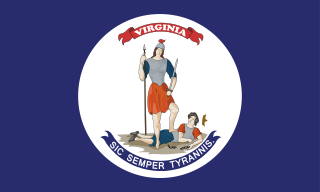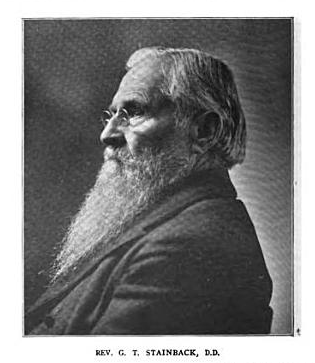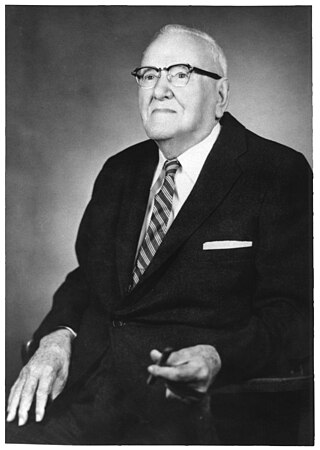Related Research Articles

Henry County is a county located in the U.S. state of Virginia. As of the 2020 census, the population was 50,948. The county seat is usually identified as Martinsville; however, the administration building, county courthouse, and Henry County Sheriff's Office are located on Kings Mountain Road in Collinsville.The Henry County Adult Detention Center is located on DuPont Road in Martinsville.

The Greenbrier is a luxury resort located in the Allegheny Mountains near White Sulphur Springs in Greenbrier County, West Virginia, in the United States.

William Crawford was an American military officer and surveyor who worked as a land agent alongside George Washington while Washington was a teenager. Crawford fought in the French and Indian War, Lord Dunmore's War and the American Revolutionary War arising to the rank of Colonel. In 1782, his unit was attacked, and while he and his surgeon escaped for less than one day, Crawford was eventually captured where he was tortured and burned at the stake by Crawford's former soldier turned British agent, Simon Girty, and Captain Pipe, a Chief of the Delaware Nation.

John Harvie was an American Founding Father, lawyer and builder from Virginia. He was a delegate to the Second Continental Congress, where he signed the Articles of Confederation, in 1777 and 1778. He was a successful lawyer and landowner, as well as the fourth mayor of Richmond, Virginia. Thomas Jefferson was a friend since his childhood; his father was Jefferson's guardian. He negotiated a peace treaty in 1774 after the Battle of Point Pleasant. During the American Revolutionary War, he was on the Board of War and operated a prison of war camp on his property, The Barracks.

Henry "Harry" Heth (1764-1822) was a Virginia officer and businessman. After settling in Chesterfield County, Virginia near Richmond circa 1759, he established and ran the Black Heath coal mines following the American Revolutionary War. During that conflict, Heth and his brothers served officers in the Continental Army and would become founding members of the Society of the Cincinnati. Heth became involved in many commercial activities in Richmond and Norfolk from the late 1790s to his death.
Bonsack is an unincorporated community in eastern Roanoke County, Virginia, United States. The community is located near the junction of US 460 and US 220 Alternate.

The 42nd Virginia Infantry Regiment was an infantry regiment raised in Virginia for service in the Confederate States Army during the American Civil War. It fought mostly with the Army of Northern Virginia.

Ada Jessamine Shumate was an American artist, historian and cartographer, winner of the "Award of Distinction" in 1955 from the Virginia Museum of Fine Arts.
James Brenton Sr (1741–1782) was an American Revolutionary War officer. He was killed by American Indians during the Battle of Blue Licks in Robertson County, Kentucky. He married Rebecca Scott (1740–1771) abt. 1763 in Frederick County, Virginia, and then married Mary Woodfield (1750–1834) in 1772, Westmoreland County, Pennsylvania.

Liberty Hall is located in Bedford County in Forest, Virginia. It is one of the very few Federal-Style homes still standing today from the 1700s in the Central Virginia area. It was built in 1778 as a family home. Rutherford B. Hayes and William McKinley once visited the home during the Civil War. Many homes were burnt in Forest, Virginia in the 1800s yet Liberty Hall was spared. The first owner of Liberty Hall was the founder of Augusta Academy which is now Washington and Lee University. Liberty Hall is now a private residence that has stayed in the family for over 100 years. It is listed on the National Register of Historic Places.
Andrew Wodrow (1752–1814) was a prominent Scottish American merchant, militia officer, clerk of court, lawyer, and landowner in the colony of Virginia.
New London is currently an unincorporated community and former town in Campbell County, Virginia, United States. The site of the colonial community is eleven miles southwest of downtown Lynchburg, Virginia. In 1754, Bedford County was formed and New London was established as the county seat. Situated near the intersection of the Great Wagon Road and the Wilderness Road, the town was an important stopping point for settlers heading west.

George Tucker Stainback was an American classicist and Presbyterian minister; he served as a chaplain in the Confederate Army, and in 1877 presided over the funeral of Confederate general Nathan Bedford Forrest.
Robert Hairston was an 18th century settler who became a planter, politician, and military officer in Virginia and served in the initial session of the Virginia House of Delegates representing Henry County.
George Hairston was a Virginia planter, patriot and politician in Virginia who served one term in the Virginia House of Delegates representing Henry County after serving as a Colonel in the American Revolutionary War and later served as a Brigadier General in the War of 1812. The first of three men of the same name to serve in the Virginia General Assembly, unlike the two other men, he did not serve in the Virginia Senate, although this Hairston may be better known for building Beaver Creek Plantation, which remained his home and which he farmed using enslaved labor, or for helping to found Martinsburg.
Alexander Hunter Bassett was a noted planter and local leader in Henry County, Virginia.

John David Bassett, Sr. was a noted American industrialist who formed the Bassett Furniture Company in 1902. During the late 1960s, the Bassett Furniture Industries, Inc., was the largest manufacturer of wooden furniture in the world, with sales of over $118 million in 1968.
Thomas Goode was a Virginian physician who purchased the Warm Springs resort in Virginia and helped establish European style hydrotherapies there.
John Henry Pinkard was a businessman, banker, and herb doctor in Roanoke, Virginia. He was also known as a spiritualist and clairvoyant. Other people considered him a practitioner of quackery and a charlatan.
The Roanoke Tribune is a weekly newspaper in Roanoke, Virginia.
References
- ↑ Virginia County Court (Bedford County), Will books, v. 1 1763-1787, Virginia State Library, Richmond, VA, 1977. (WB1:66-70) film 1941022 https://www.familysearch.org/ark:/61903/3:1:3QS7-89P6-2FDZ?i=63&cat=275249
- ↑ The Hunters of Bedford County, Virginia; Notes and Documents on the Family of James Hunter, Regulatory Leader of North Carolina, Including Forebearers in Pennsylvania, Virginia, North Carolina, Louisiana, and Texas, Walter Marvin Hunter, Polyanthos, Cottonport, LA, 1973, 296pp.
- ↑ Hadden, Robert Lee. The Shamrock and the Fleur De Lys: The Family Histories of the William James Hadden Family and the Whitney Shumate Family. Greenville, N.C. (1600 E. 6th St., Greenville 27834): Hadden Pub. Association, 1990. Pages 271-272. http://www.worldcat.org/oclc/23051809
- ↑ Blunt, Charles P. Complete Index and Abstract of the Henry County Order Books #1 and #2, 1777-1782. Richmond: Distributed by Briarwood Publications, 1978. Page 73.
- ↑ "Alexander Hunter".
- ↑ Blackberry Creek flows eastward out of foothills in the eastern edge of Patrick County and joins the Smith River about 5 miles to the west in Henry County. Before a boundary change in 1856 a mile or two more of the creek was in Patrick County than is the case now.
- ↑ Abstracts of Henry County, Virginia Deed Books III and IV August 1784-June 1792 – Compiled by Lela C. Adams. Pages 182-183: 24 Feb 1791. http://www.worldcat.org/oclc/11155178
- ↑ National Archives and Records Service. File Designation 5868. Office of the Army, Paymaster General. Ordered by the US Congress on July 1, 1783, to settle all accounts with the soldiers of the US Army. Journal American Congress, Volume 4, page 237. Report. Volume 3, page 202.
- ↑ Abercrombie, Janice L., and Richard Slatten. Virginia Revolutionary "Publick" Claims. Athens, Ga: Iberian Pub. Co, 1992. Volume II, Page 510.
- ↑ Circuit Court of Bedford County, Virginia. Will Book #1. Page 50.
- ↑ Fothergill, Augusta B., and John Mark Naugle. Virginia Tax Payers, 1782-87: Other Than Those Published by the United States Census Bureau. Baltimore: Genealogical Pub. Co, 1966. http://www.worldcat.org/oclc/4684446